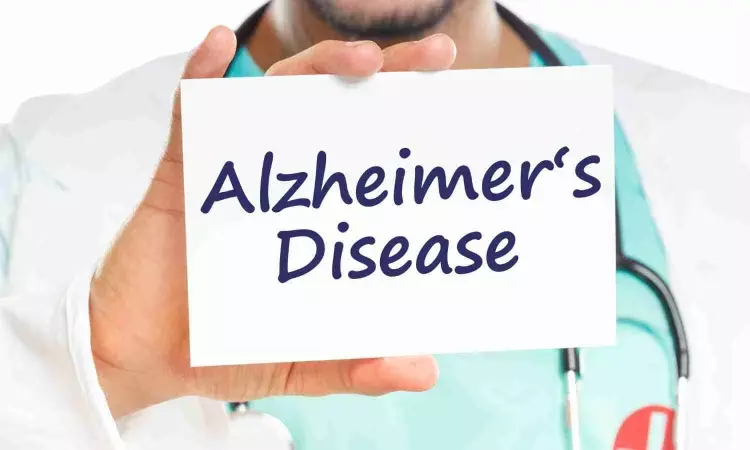- Home
- Medical news & Guidelines
- Anesthesiology
- Cardiology and CTVS
- Critical Care
- Dentistry
- Dermatology
- Diabetes and Endocrinology
- ENT
- Gastroenterology
- Medicine
- Nephrology
- Neurology
- Obstretics-Gynaecology
- Oncology
- Ophthalmology
- Orthopaedics
- Pediatrics-Neonatology
- Psychiatry
- Pulmonology
- Radiology
- Surgery
- Urology
- Laboratory Medicine
- Diet
- Nursing
- Paramedical
- Physiotherapy
- Health news
- Fact Check
- Bone Health Fact Check
- Brain Health Fact Check
- Cancer Related Fact Check
- Child Care Fact Check
- Dental and oral health fact check
- Diabetes and metabolic health fact check
- Diet and Nutrition Fact Check
- Eye and ENT Care Fact Check
- Fitness fact check
- Gut health fact check
- Heart health fact check
- Kidney health fact check
- Medical education fact check
- Men's health fact check
- Respiratory fact check
- Skin and hair care fact check
- Vaccine and Immunization fact check
- Women's health fact check
- AYUSH
- State News
- Andaman and Nicobar Islands
- Andhra Pradesh
- Arunachal Pradesh
- Assam
- Bihar
- Chandigarh
- Chattisgarh
- Dadra and Nagar Haveli
- Daman and Diu
- Delhi
- Goa
- Gujarat
- Haryana
- Himachal Pradesh
- Jammu & Kashmir
- Jharkhand
- Karnataka
- Kerala
- Ladakh
- Lakshadweep
- Madhya Pradesh
- Maharashtra
- Manipur
- Meghalaya
- Mizoram
- Nagaland
- Odisha
- Puducherry
- Punjab
- Rajasthan
- Sikkim
- Tamil Nadu
- Telangana
- Tripura
- Uttar Pradesh
- Uttrakhand
- West Bengal
- Medical Education
- Industry
Drugs used for treating erectile dysfunction tied to reduced risk of Alzheimer's disease: Study

UK: Erectile dysfunction drugs, which work by dilating blood vessels to allow more blood to flow through, were first developed to treat high blood pressure. A new study published in Neurology suggests that the drugs may be tied to a reduced risk of Alzheimer's disease.
According to the study, the drugs used to treat erectile dysfunction may also be associated with a reduced risk of Alzheimer's disease. The study does not prove that erectile dysfunction drugs reduce the risk of Alzheimer's disease. It only shows an association.
The study involved 269,725 male participants with an average age of 59 who were newly diagnosed with erectile dysfunction. Participants did not have any memory or thinking problems at the start of the study. They were then followed for an average of five years. The study compared the 55% of the participants who had prescriptions for erectile dysfunction drugs to the 45% who did not have prescriptions.
During the study, 1,119 people developed Alzheimer’s disease.
Among the participants taking erectile dysfunction drugs, 749 developed Alzheimer’s disease, which corresponds to a rate of 8.1 cases per 10,000 person-years. Person-years represent both the number of people in the study and the amount of time each person spends in the study. Among those who did not take the drugs, 370 developed Alzheimer’s disease, which corresponds to a rate of 9.7 cases per 10,000 person-years.
Once researchers adjusted for other factors that could affect the rate of Alzheimer’s disease, such as age, smoking status and alcohol consumption, they found that people who took erectile dysfunction drugs were 18% less likely to develop Alzheimer’s than people who did not take the drugs.
The association was strongest in those who were issued the most prescriptions over the study period.
“More research is needed to confirm these findings, learn more about the potential benefits and mechanisms of these drugs and look into the optimal dosage,” Brauer said. “A randomized, controlled trial with both male and female participants is warranted to determine whether these findings would apply to women as well.”
The study was based on prescription records. A limitation of the study is that researchers did not have information on whether participants actually filled the prescriptions and used the drugs.
Dr Kamal Kant Kohli-MBBS, DTCD- a chest specialist with more than 30 years of practice and a flair for writing clinical articles, Dr Kamal Kant Kohli joined Medical Dialogues as a Chief Editor of Medical News. Besides writing articles, as an editor, he proofreads and verifies all the medical content published on Medical Dialogues including those coming from journals, studies,medical conferences,guidelines etc. Email: drkohli@medicaldialogues.in. Contact no. 011-43720751


